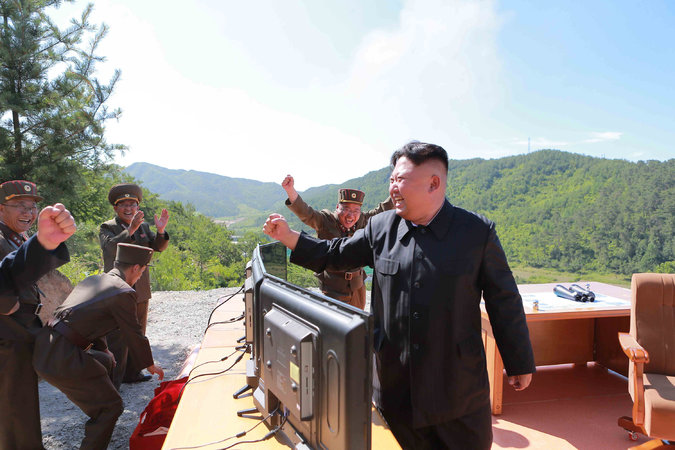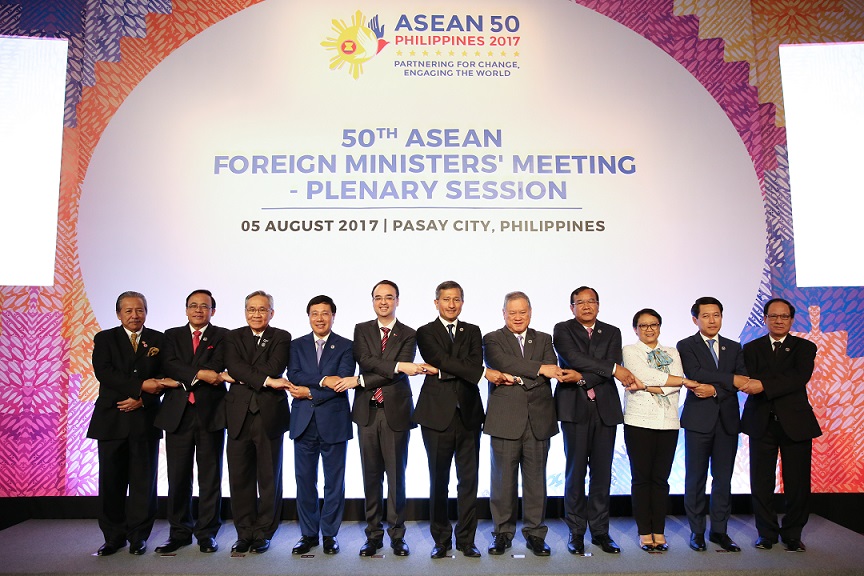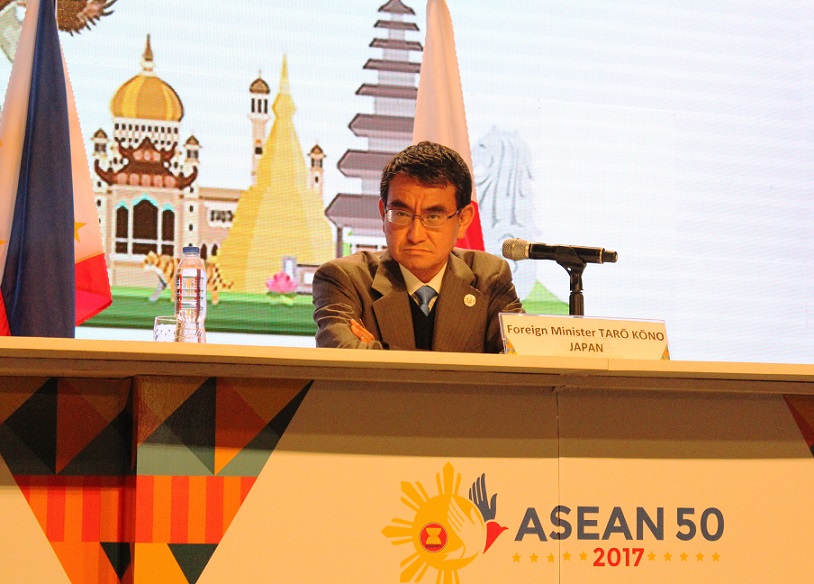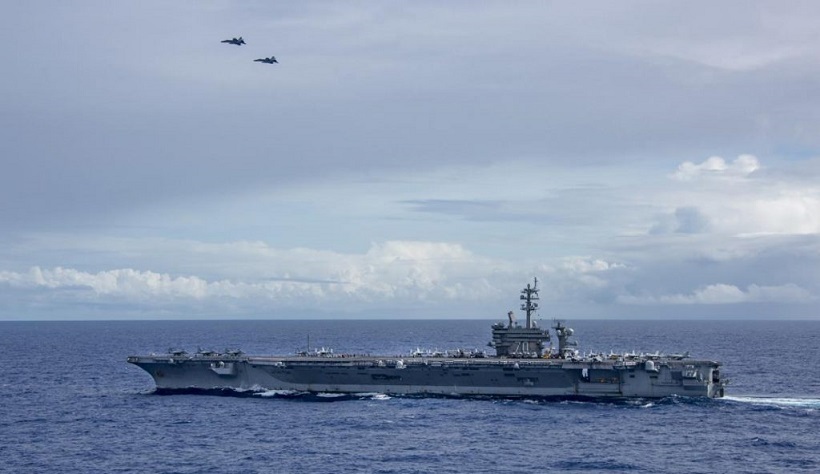
The commander of U.S. forces in the Pacific ordered on April 8 the U.S. Navy’s Carl Vinson carrier strike group to change course and head towards the Korean Peninsula in response to North Korea’s advancing weapons tests. US Navy photo shows the aircraft carrier in South China Sea in February 2017.
Hopefully, the jostling between U.S President Donald Trump and North Korean dictator Kim Jong-Un will not go beyond strategic positioning of aircraft carriers and troops.
Because in the hopefully- unlikely event of a war between the United States and North Korea, the Philippines will be greatly affected.
Number one, there are more than 60,000 Filipinos in South Korea. Many are married to Koreans while a large number are workers. A displacement of these huge number of Filipinos will mean difficulties not only for the workers and their families but also to the Philippine economy.
Number two, the U.S. can invoke the 1951 RP-US Mutual Defense Treaty that states:
“ARTICLE IV. Each Party recognizes that an armed attack in the Pacific area on either of the Parties would be dangerous to its own peace and safety and declares that it would act to meet the common dangers in accordance with its constitutional processes.”
The Philippines has no warships or warplanes to add to the armada of battleships that the U.S. Pacific Command is starting to position off the Korean Peninsula. But U.S. warships and warplanes can refuel in the Philippines in military bases where the U.S. was allowed to set up facilities under the Enhanced Defense Cooperation Agreement (EDCA) signed in 2014.

Filipinos in South Korea. Photo from dfa.gov.ph
Lawyer and broadcaster Mel Sta. Maria, Jr., dean of Far Eastern University Institute of Law said the U.S. can invoke the MDT in enlisting the support of the Philippines in a conflict with North Korea because, “According to Article 5, an ‘armed attack’ includes an attack on its ‘public vessels’ in the Pacific. :
However, Sta. Maria said, “Under Article 3, the extent of Phil. assistance in the implementation of The MDT will still be subject to consultation between the US and Phil, but all efforts must be, in accordance with the stated purpose of the treaty, in view of ‘their sense of unity and their common determination to defend themselves against external armed attack so that no potential aggressor could be under the illusion that either of them stands alone in the Pacific.’”
Sta. Maria further said, “One thing is sure, under the MDT, in case a U.S public ship is attacked, the Philippines must declare our support for US but the extent of support is subject to the Philippine Constitution and UN Charter. Support can very well be a public declaration of support without more.”
Atty. Romel Bagares of Centerlaw, which had questioned the legality of EDCA, takes it from another perspective. He said “With EDCA, we’re a likely target (of North Korea retaliation.)”
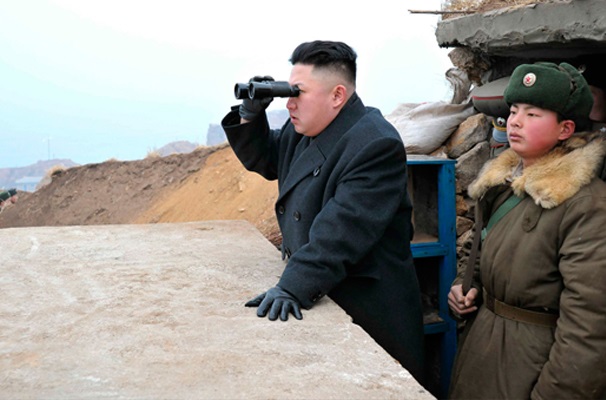
North Korean leader Kim Jung On. Photo from Euronews.
The tense situation in the Korean peninsula follows the U.S. bombing of Syria of places controlled by Russian -backed Syrian President Bashar Hafez al-Assad as a retaliation to the chemical attack that Assad launched in the outskirts of Damascus first week of April.
Assad, which the U.S. has accused of responsibility for widespread atrocities, is the target for ouster of the brutal jihadist group, ISIS, which the Americans are also fighting.
North Korea, first week of April, fired another of its U.N. banned ballistic missile angering Trump, who said that if China, North Korea’s major patron, won’t be able to rein in the renegade state, he will act on its own.
“North Korea is looking for trouble. If China decides to help, that would be great. If not, we will solve the problem without them! U.S.A,” Trump tweeted his warning.
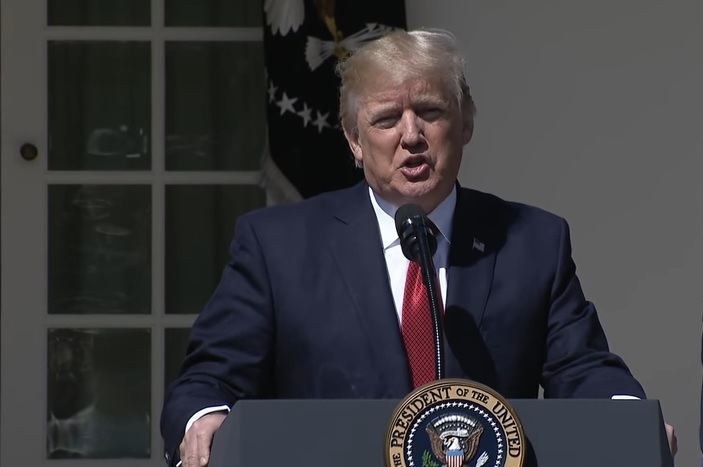
U.S. President Trump. Photo from Whitehouse website.
North Korea’s reply was belligerent: “Nothing will be more foolish if the United States thinks it can deal with us the way it treated Iraq and Libya, miserable victims of its aggression, and Syria, which did not respond immediately even after it was attacked,” a spokesman for the general staff of the North’s People’s Army said in a statement carried by Pyongyang’s official Korean Central News Agency.
North Korea is a bigger problem than Syria because it has nuclear weapons which Assad does not have.
China, which reports said has positioned 150,000 of its troops to the North Korean border to prevent mass exodus of refugees, is the voice of moderation as the U.S. and North Korea beat the drums of war
Chinese Foreign Minister said, “On the Korean Peninsula issue, it is not the one who espouses hasher rhetoric or raises a bigger fist that will win. If war breaks out, multiple parties will lose and no one will win.”
